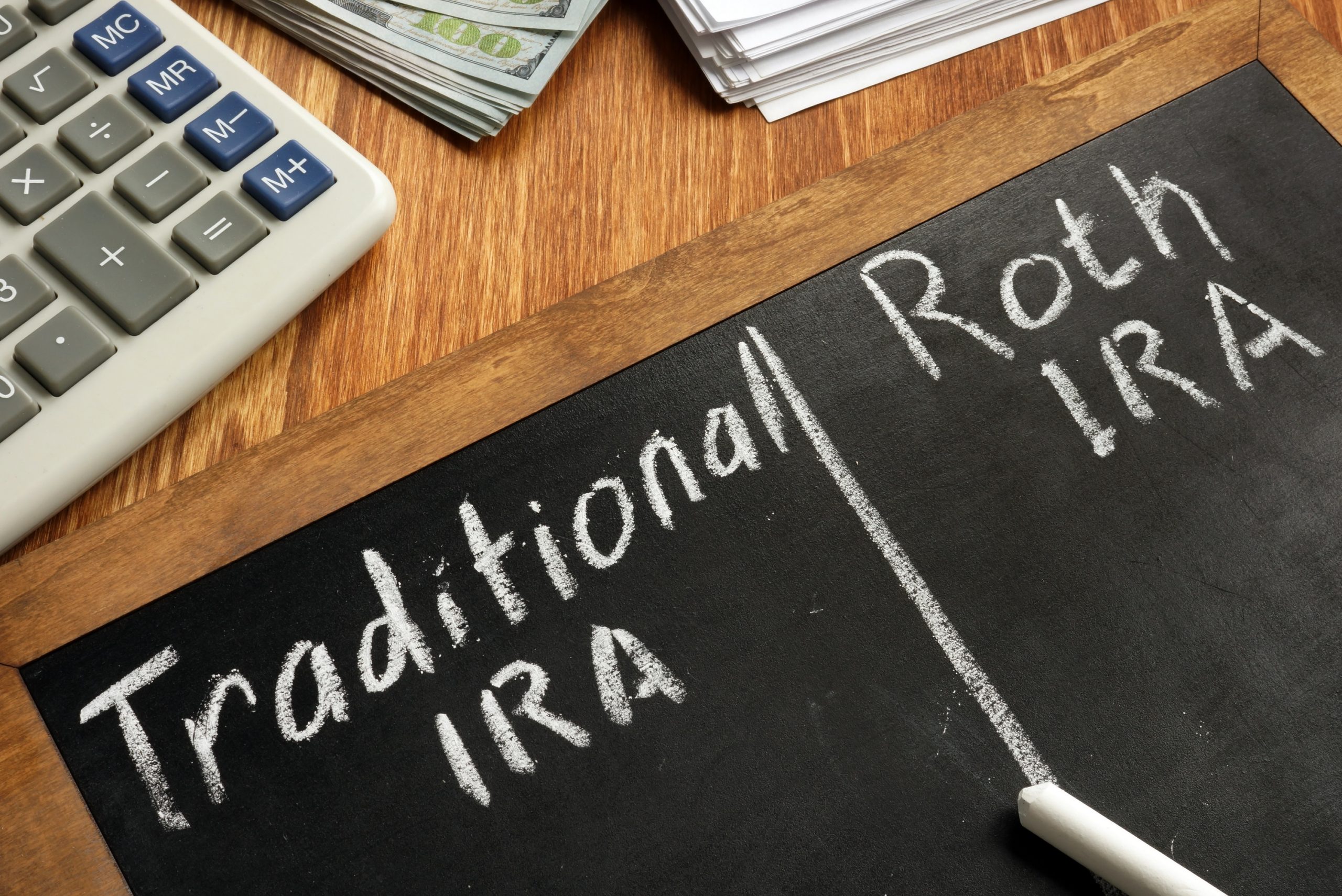
Roth or Traditional?
A very common question amongst investors is whether they should contribute to a Roth or Traditional retirement account. This could either mean an IRA, or an employer sponsored plan such as a 401(k) or 403(b). That question cannot be so easily answered as the effectiveness of both accounts completely depends on an individual’s current and/or projected future tax situation. In some circumstances adding funds to a Roth account may make sense, while others a Traditional account would be most beneficial.
Starting with the basics; when money is deposited into a Traditional IRA or employer sponsored retirement plan, 401(k) or 403(b), the funds are deposited into the account before taxes have been withheld. Since this money is considered pre-tax money, you will not be paying taxes the year it is contributed but when you withdraw it years later, you will then pay tax. Contributing to an IRA allows for you to take a tax deduction during tax filing time, similarly any contributions to your employer sponsored plan reduces your taxable income for the year. When contributing to a Roth IRA or Roth Employer sponsored plan, the funds that are being contributed have already been taxed, so are therefore considered an after-tax contribution, and then proceeds to grow tax free in the accounts.
Keeping that basic information in mind will help to decide on which option is better for your situation. Let’s think about a scenario. Say you are 22, just starting out in the workforce with a smaller income, which correlates to a lower tax bracket, such as 10%. If you do Roth contributions, that will mean you are paying 10% on that money now. As you get older and advance your career with hopefully a higher income coupled with a higher income tax bracket, when it is time to use the money in retirement, you are likely withdrawing it from the account tax-free!
Using a different situation, assume you are 50, toward the height of your career and find yourself in the 24%-32% tax bracket. It is likely that you would want to pay less tax today, so you may choose to contribute to a Traditional retirement account (IRA or Employer Plan) which reduces your yearly income for tax purposes. Ideally, once you are retired and begin to use the retirement account, you are withdrawing the money at a lower tax bracket than you previously were in.
Some of the other thoughts to consider between the two are the stipulations on who can contribute how much. Remember that the TOTAL combined contribution limits between Roth and Traditional accounts are the same, and you or your working spouse must have earned income to contribute:
- IRA contributions under 50 for the year 2021 is $6000 or $7000 if you are over 50.
- 401(k) contributions under 50 for the year 2021 is $19,500 or $26,000 over 50.
ROTH CONTRIBUTION CONSIDERATIONS:
For Roth IRA contributions there is an income phase out amount. If your earnings are in the phased-out amount, you will be unable to contribute.
In 2021, if your tax filing status is Married filing jointly then the phase out AGI amount is $198,000 to $208,000. If single/head of household it is between $125,000 and $140,000.
For Roth 401k contribution, there are no income limits/restrictions. This is the best opportunity for you to put away as much as $19,500 or $26,000 if over 50.
Another big benefit of Roth IRA accounts includes the fact that you do not have to remove Required Minimum Distributions (RMDs) at age 72. Your beneficiaries will also not pay any tax on the account either, however they will have to liquidate it within a 10-year time frame.
In a Roth IRA, you can withdraw your contributions at any time but must keep the earnings in the account for at least 5 years and until age 59 ½ to avoid any penalties.
Any contribution towards your retirement is a smart one! Both IRAs and employer plans are great vehicles for saving money towards your future income. The reason to consider which type of account makes the most sense for you is for the added value of tax planning and finding a way to make your money work best for you. Saving for your future in one way or another is very important. Utilizing tax strategies helps your money work smarter.



